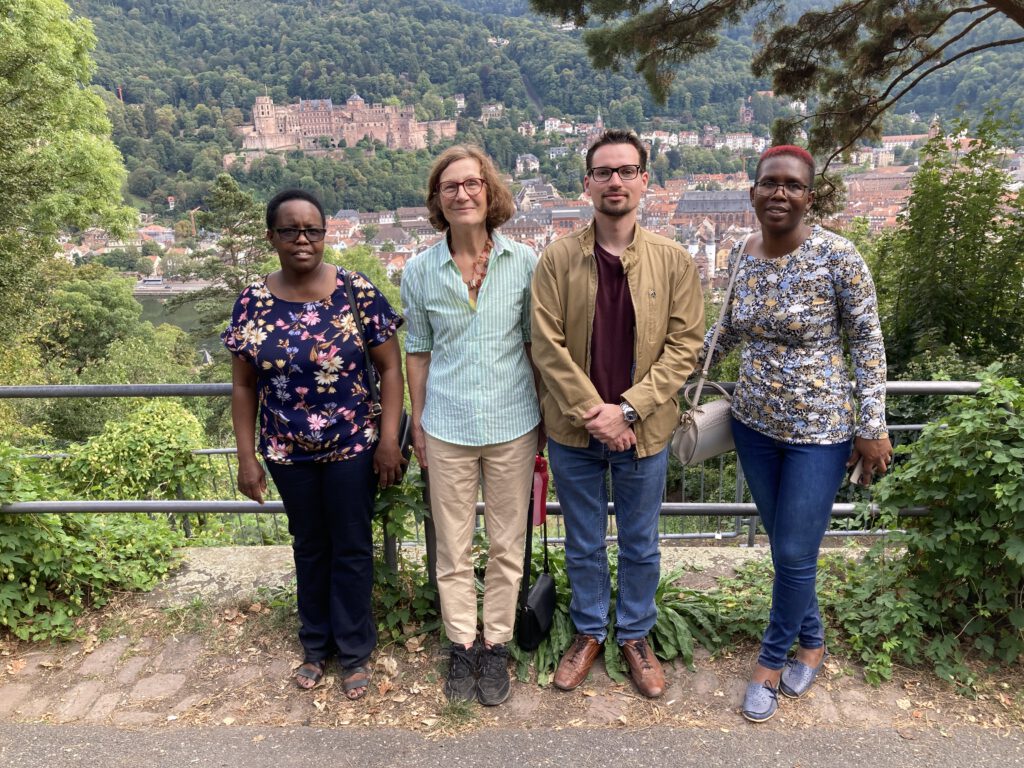The presentation of the results of the RUC project garnered significant attention at this year’s EMES conference, the international research network for social enterprise.
Right from the beginning of the conference, held from September 11th to September 14th at the University for Applied Science in Frankfurt, the exchange between theory and practice was on the agenda. Social enterprises from Germany had the opportunity to introduce themselves to an international audience and discuss the challenges and opportunities of social enterprises in a rapidly changing environment with renowned scholars.
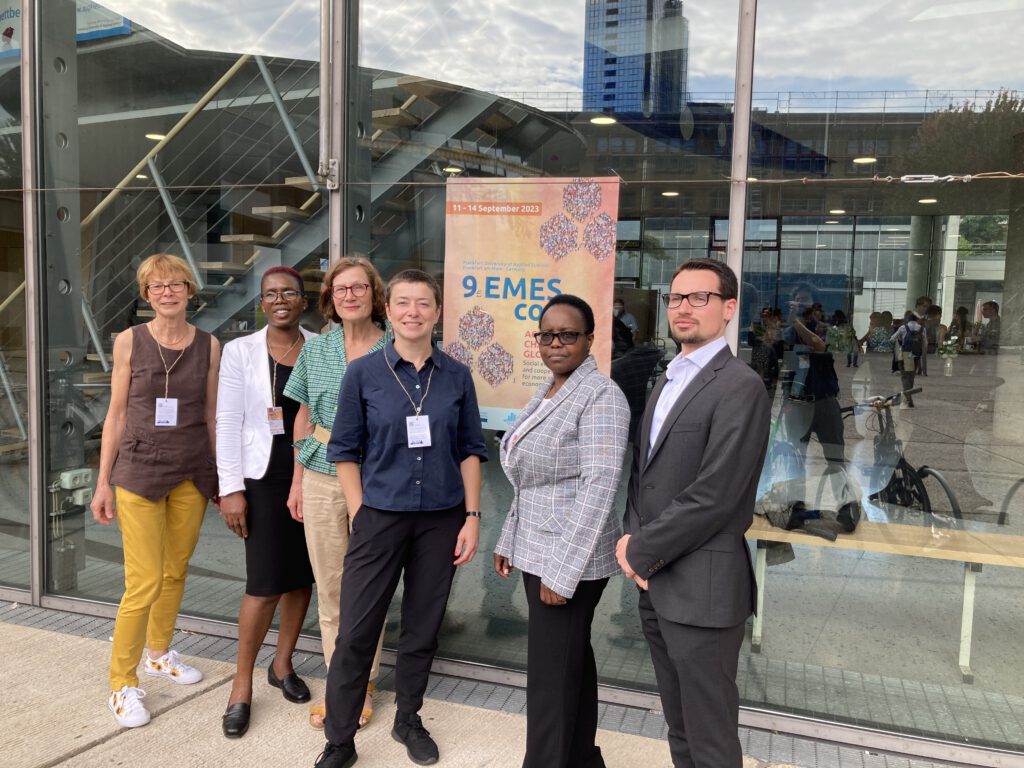
For the members of the RUC research team, this kickoff was a great introduction to a study tour designed to familiarize them with the concept and actual realization of social entrepreneurship in Germany. A highlight of the first day of EMES was the panel discussion with the State Secretary from the Ministry of Economics, Sven Giegold, and the Commissioner for Social Enterprises in the Ministry of Science, Zarah Bruhn.
Social enterprises are increasingly gaining importance in current German politics. In this context, the recently published and approved “National Strategy for Social Innovations and Public Benefit Enterprises” by the Bundestag is noteworthy. With its goals, concerns, and research methods, the RUC project, which places social enterprises at the center, has its finger on the pulse of current affairs. This was evident during the presentation of the project’s results in a dedicated panel on the third day of the conference. Dr. Nicole Baron from the Bauhaus-University Weimar, Dr. Rose Cheruiyot-Koch, and Dr. Melody Mandevere, all from the Centre on African Philanthropy and Social Investment – affiliated with the Business School of the University of the Witwatersrand in Johannesburg –, presented their findings. It became clear that social enterprises are powerful local actors, typically led by ambitious entrepreneurs, who drive initiatives in their communities and have the ability to synergistically combine social and societal goals with economic activities. Often, it is social entrepreneurs, especially women, who have the courage, strength, and perseverance to initiate and sustain such enterprises despite various challenges that are facing them. In Africa, as elsewhere, there is a lack of skilled professionals with the necessary expertise to effectively run a business in the social sector. Resources are always scarce in the social sector and in Africa, reliance on donations, sponsorship, and especially extensive public support is usually not an option. Despite many differences between the Global South and the North, the research findings of the RUC project also highlight common challenges faced by social enterprises in both regions. One of these challenges is the lack of ecosystems geared toward supporting social entrepreneurship. Following the panel discussion, valuable connections were established with researchers from Brazil, Italy, and Ireland, who are currently working on projects with similar goals.
The opportunity to travel to Germany was additionally used for a study tour with the goal of becoming familiar with the traditions of social entrepreneurship in Germany and learning about the current working areas of social enterprises in the country. Among the organizations visited by the RUC team was “Stich by Stich,” a social enterprise operating in the fashion industry, whose founders primarily provide access to education and employment for migrant women.
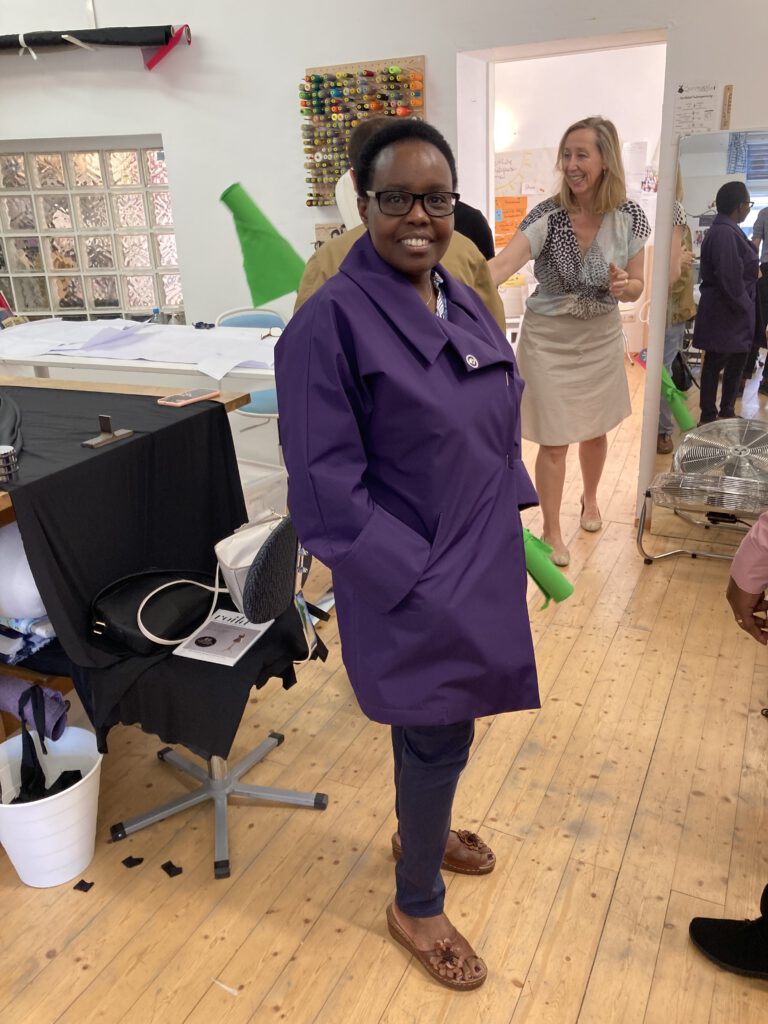
The Dialogue Museum aims to make the world of blind people accessible to everyone and raise awareness of the challenges faced by people with this disability. At the same time, this social enterprise provides jobs and opportunities for blind and visually impaired individuals.
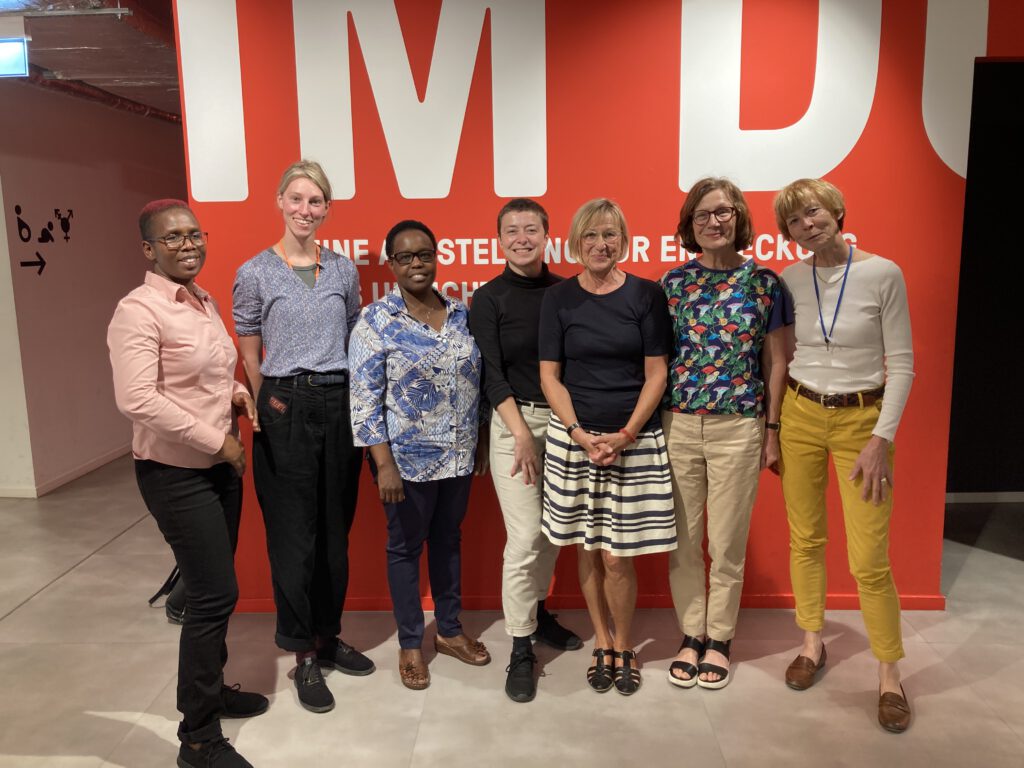
One social enterprise with a long tradition is the Polytechnic Foundation of Frankfurt (Stiftung Polytechnische Gesellschaft). It is an operating foundation whose goal is to contribute to equal opportunities for all citizens of Frankfurt. This is achieved through a diverse range of educational and training opportunities. A visit to a social enterprise engaged in agriculture and practicing social-ecological work was also on the agenda, providing deep insights into the diverse work areas and themes of social enterprises in Germany for the guests from Africa.
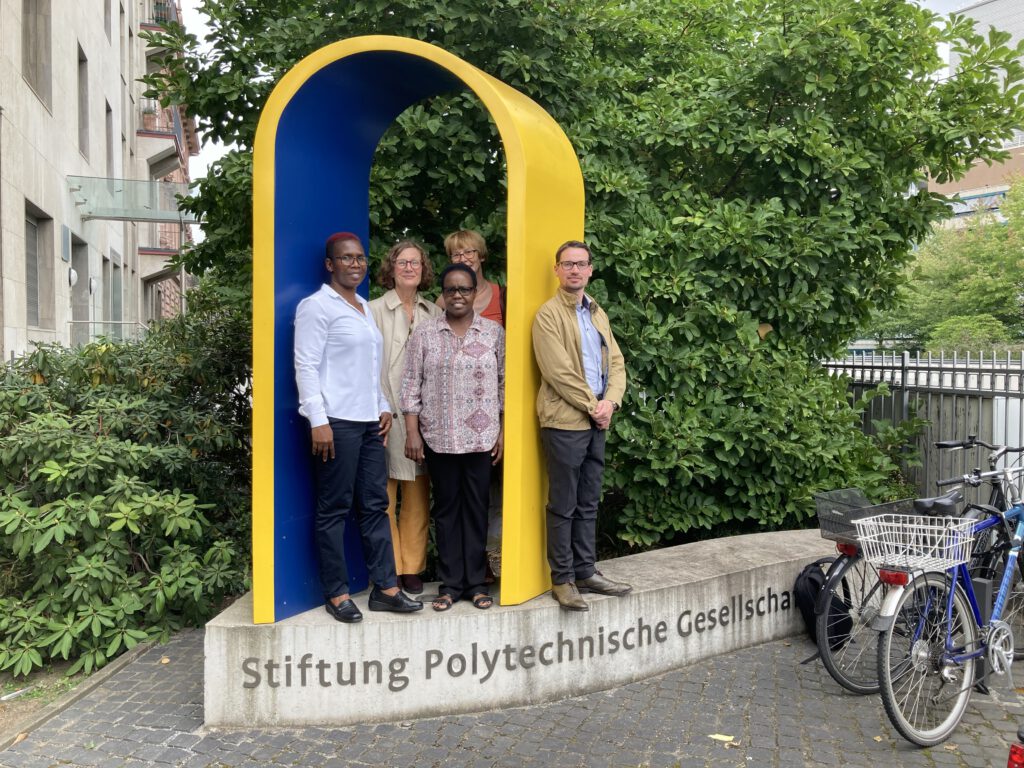
A small excursion to the historic student city of Heidelberg was also included in the program. Overall, according to the participants from Johannesburg, participating in the conference and the study tour was very rewarding. They return home with diverse impressions and the certainty that continued collaboration on the topic of social enterprises would be equally worthwhile for Germany and the Global South.
